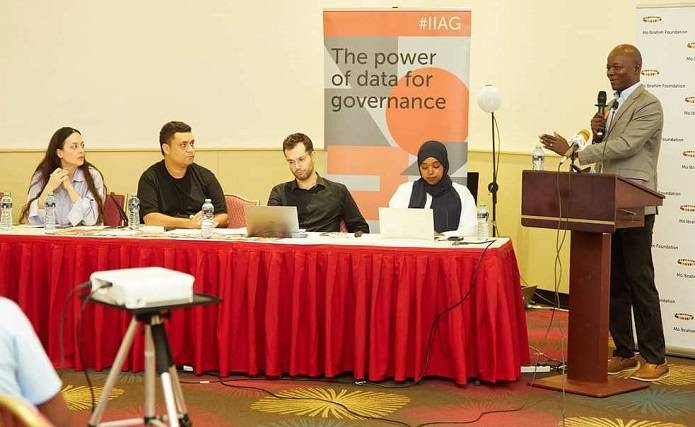
Insufficient data and statistical information are slowing down the progress of Africa nations in achieving their growth goals, the Ibrahim Index of African Governance (IIAG) Series 2023 report has revealed.
It said although data was crucial to the continent’s development agenda through effective policymaking and good governance, Africa remains the world’s region with major data gaps.
Data gaps refer to missing or incomplete information about a particular issue of interest in a dataset due to reasons including unfinished data collection, measurement errors or breach in time or spatial coverage.
The IIAG, instituted in 2007 by the Mo Ibrahim Foundation, assesses governance performance in 54 African countries, using various indicators, including security, rights, economic opportunities and human development.
Launched in Accra on Monday, the Series 2023 report dubbed ‘The power of data for governance. Closing data gaps to accelerate Africa’s transformation,’ was compiled with support from the Afrobarometer, a research network.
According to highlights of the report, sound data was crucial in proper targeting of policies and programmes for effective implementation and progress tracking and prioritisation.
The IIAG Lead, Diego Fernandez, touching on the need to accelerate progress on population, household and agricultural data over the last decade said as of 2022, 12 African countries had completed their latest population census.
Currently, he said some countries were yet to conduct population census, household survey or agriculture census for more than a decade.
On civil registration and vital statistics, he said only 10 African countries accounting for 19.6 per cent of the continent’s population had a birth registration system that recorded at least 90 per cent of births.
Only three African countries, accounting for 7.8 per cent of the continent’s population, had a death registration system that records at least 90 per cent of deaths that occurred.
“Less than half of African countries (26) have data on death registration completeness as of April 2023,” he said.
In order to improve Africa’s data landscape, the report suggested data disaggregation by gender, age and disability to ensure that public policies were not misdirected and reach the most vulnerable.
It said artificial intelligence and machine learning, citizens-generated data and data collected by private companies were crucial in filling the gaps of data in the countries.
According to the report as 17 African nations prepared for elections this year, data was fundamental to empower citizens to assess government performance, shortfalls and policy priorities for the coming year.
“At the same time, there is a growing demand for sound data for African countries, particularly to measure progress towards achieving the Sustainable Development Goals (SDGs), Agenda 2063 and the Paris Agreement,” it said.
The Afrobarometer Chief Executive Officer, Joseph Asunka, said data should not be underestimated in the development framework because it helps to ensure effectiveness of policies.
Citing the Free Senior High School Programme of Ghana, he said solid data would help track the progress in order to effectively address challenges or alert policy makers to change the approach.
BY JONATHAN DONKOR







